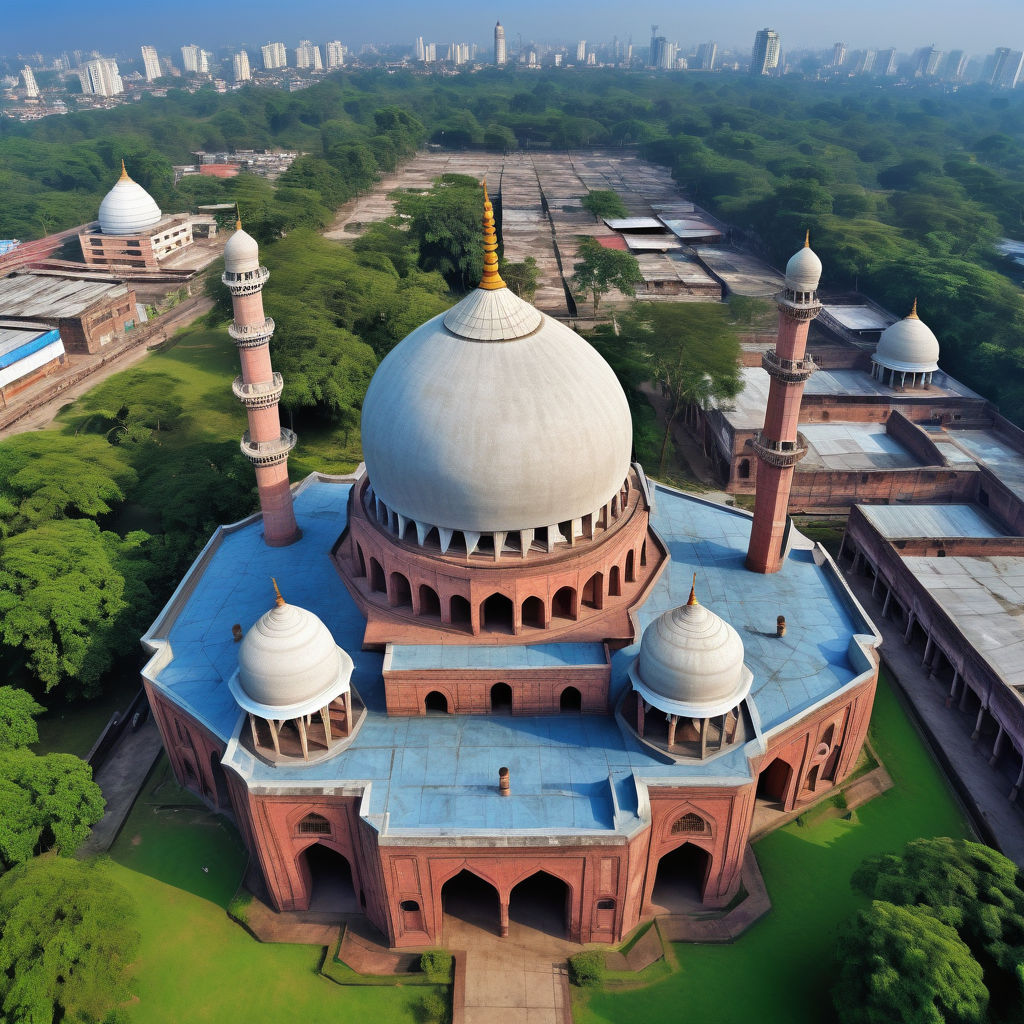Discover Bangladesh: Cultural Heritage, Social Dynamics, and Global Engagement
Exploring Bangladesh's Rich Heritage, Cross-cultural Understanding, and Social Interactions

Introduction to Bangladesh
Bangladesh, officially known as the People's Republic of Bangladesh, is located in South Asia. It is bordered by India on the west, north, and east, Myanmar to the southeast, and the Bay of Bengal to the south. Major cities include Dhaka (the capital), Chittagong, Khulna, and Sylhet. Bangladesh boasts a rich cultural heritage that is a blend of ancient traditions, historical influences from the Mughal Empire, British colonialism, and its unique Bengali identity. The country is known for its vibrant festivals, traditional music and dance, intricate handicrafts, and delicious cuisine.
Cross-national and Cross-cultural Understanding
Bangladeshis generally engage with other cultures with curiosity, warmth, and respect. The country's history of diverse influences has fostered a deep appreciation for cultural diversity and international cooperation. Bangladesh actively promotes cross-cultural understanding through various initiatives and programs. Significant cultural exchanges and educational programs highlight Bangladesh’s commitment to fostering global engagement. Institutions such as the Bangla Academy and the International Mother Language Institute promote Bengali culture and language internationally through various events, publications, and language courses. Additionally, the government and various non-governmental organizations (NGOs) support scholarships and exchange programs that facilitate academic and cultural exchanges, fostering mutual understanding. International partnerships also enhance cross-cultural understanding. Bangladesh is an active member of international organizations such as the United Nations, the South Asian Association for Regional Cooperation (SAARC), and the Commonwealth, promoting cultural cooperation and exchange. These partnerships facilitate student exchanges, collaborative research projects, and cultural festivals, strengthening Bangladesh’s cultural ties with the world.
Interactions and Social Dynamics
Interactions between Bangladeshis and foreigners are typically characterized by hospitality, warmth, and a strong sense of community. Bangladeshi social behaviors are influenced by cultural values such as "adda" (informal social gatherings), respect for elders, and communal living. These values are often reflected in the way Bangladeshis engage with outsiders. Social behaviors in Bangladesh emphasize respect and politeness in initial interactions, quickly becoming more informal and warm. Greetings often involve a handshake or a nod, and sometimes a "salaam" with a slight bow, depending on the level of familiarity and respect. Hospitality is a significant aspect of Bangladeshi culture, and guests are often treated with great care and generosity, frequently invited to share meals and participate in social gatherings. Communication styles in Bangladesh are generally indirect and polite. Bangladeshis value harmony and avoiding confrontation, often using subtle language and non-verbal cues to convey their messages. Understanding these subtleties can be challenging for foreigners, but learning the language and cultural norms can help bridge this gap. Language plays a crucial role in facilitating interactions. Bengali (Bangla) is the official language of Bangladesh, while English is widely taught in schools and spoken by many in urban areas, especially in business and academia. Multilingualism is valued and encouraged, especially in educational and professional settings.
Views on Dating and Relationships
Dating and relationships between Bangladeshis and foreigners are becoming more common, particularly among younger generations and in urban areas. Bangladeshi society tends to be conservative about relationships, heavily influenced by cultural and religious norms. However, there is a growing openness towards cross-cultural relationships as opportunities for international exposure increase. In Bangladeshi dating culture, there is often a strong emphasis on family approval and social harmony. Relationships are typically pursued with a long-term perspective, and traditional gender roles can play a significant role. Men are often expected to be providers and protectors, while women are expected to be nurturing and supportive. Cultural expectations and traditions, such as the importance of family approval and adherence to religious practices, can impact relationships. Understanding and respecting these cultural norms is essential for successful cross-cultural relationships in Bangladesh.
Marriage and Family
Marrying foreigners is accepted in Bangladesh, although it comes with certain social and familial considerations. Legal considerations for such marriages involve specific regulations governed by Bangladeshi civil law and religious practices. Foreign spouses are often required to convert to Islam if they are not already Muslim, which can be a significant consideration for cross-cultural marriages. Socially, Bangladeshi families may initially have reservations about cross-cultural marriages due to concerns about cultural differences and social compatibility. However, acceptance typically increases as relationships develop and families get to know the foreign partner. Family plays a central role in Bangladeshi culture, and marrying into a Bangladeshi family often involves participating in family gatherings and traditions. Common practices in cross-cultural marriages include celebrating both Bangladeshi and foreign traditions, creating a blended cultural environment. For example, a couple might celebrate Bangladeshi holidays like Pohela Boishakh (Bengali New Year) and Eid alongside holidays from the foreign partner’s culture.